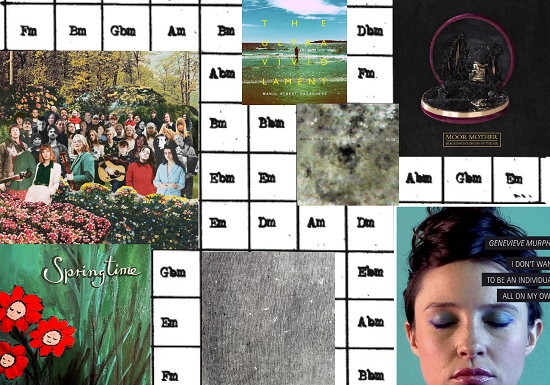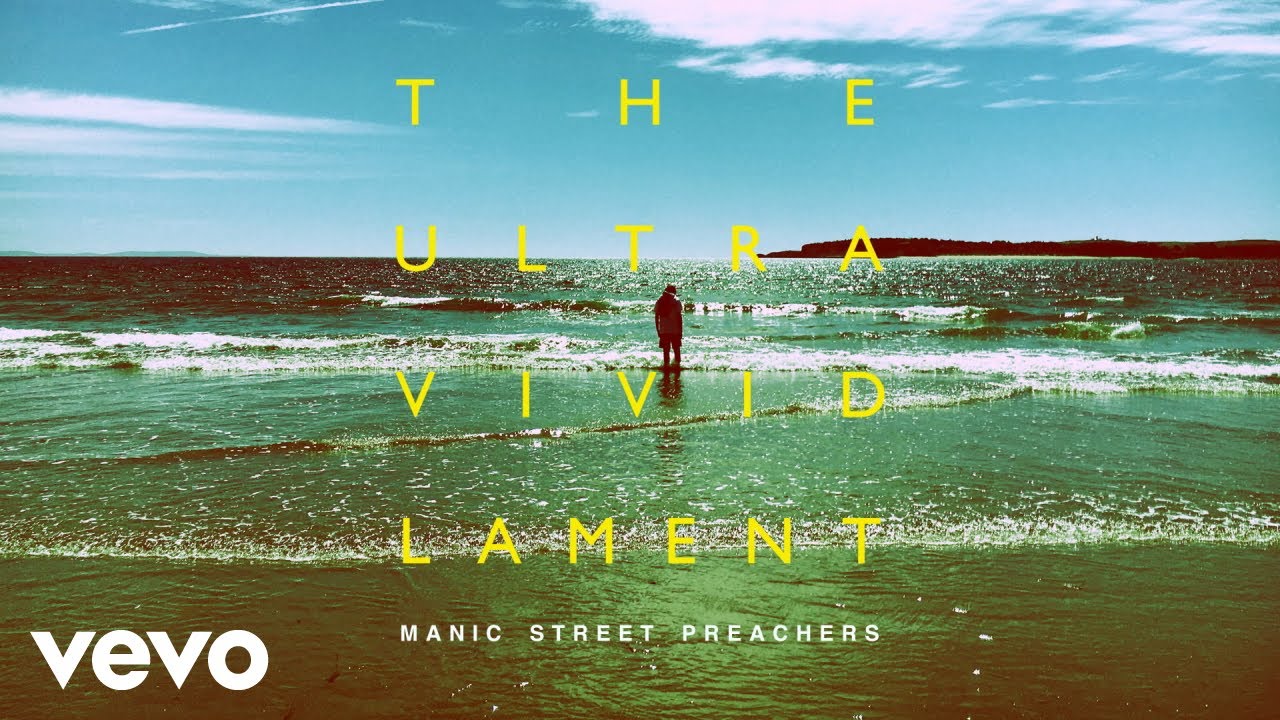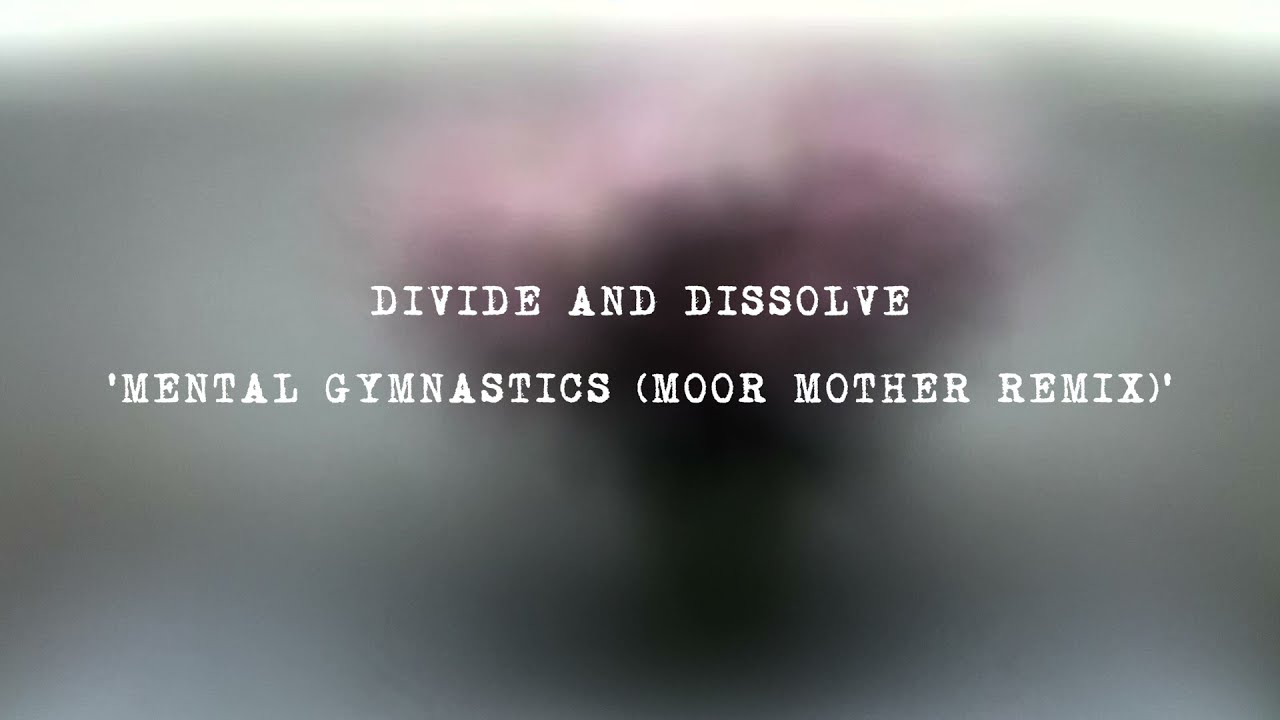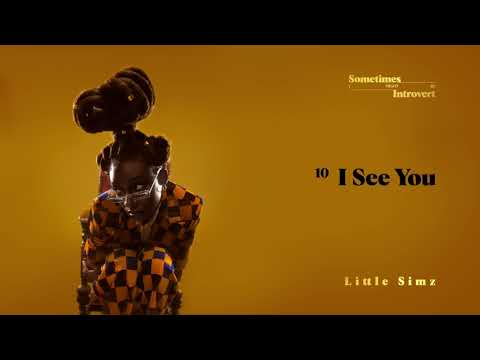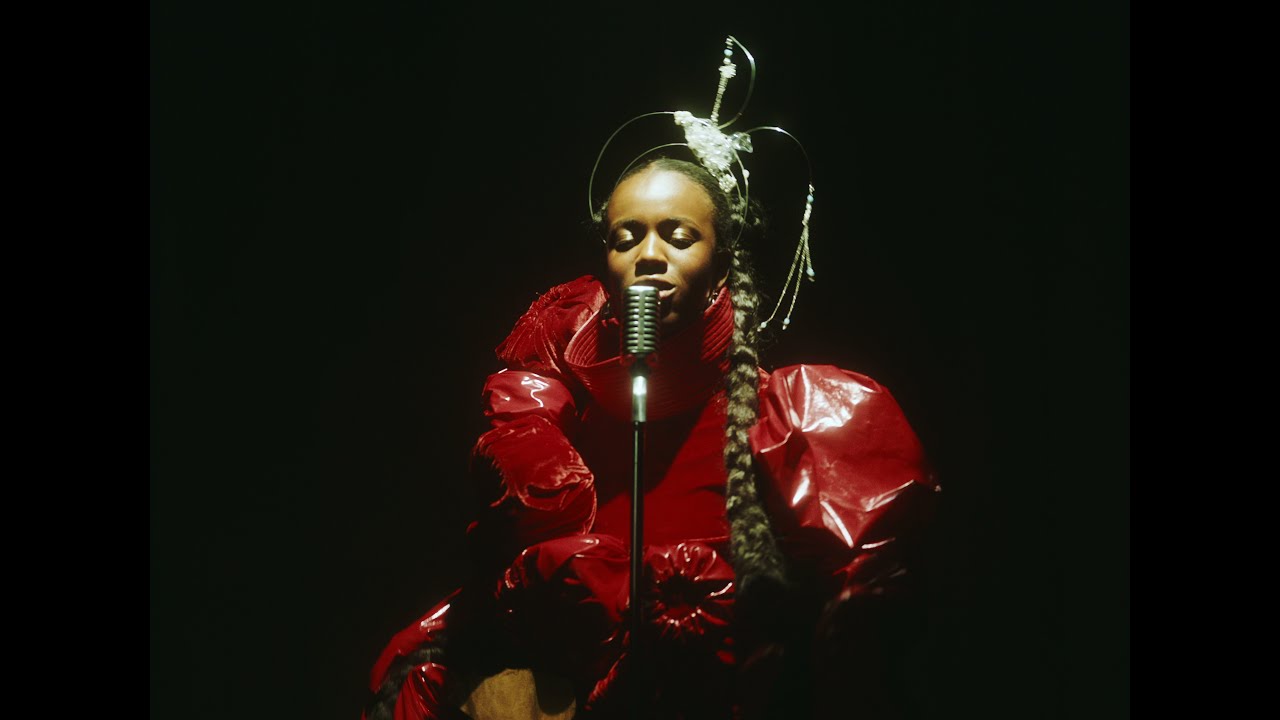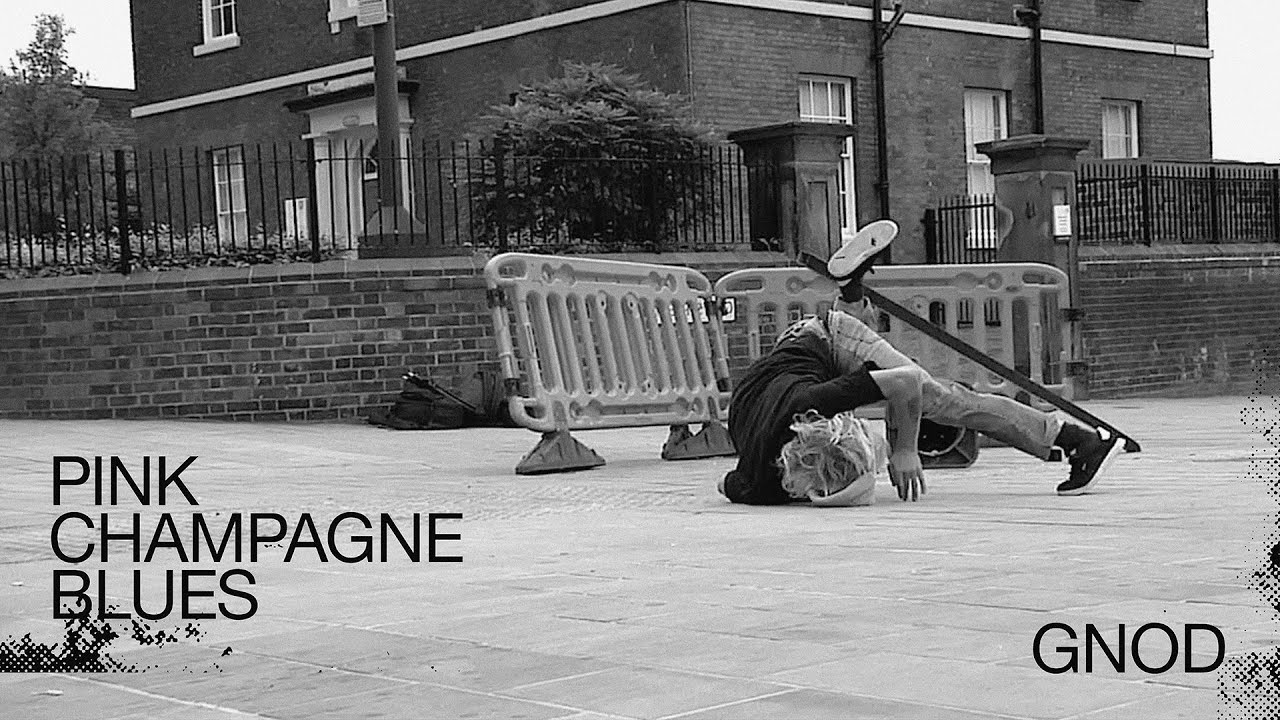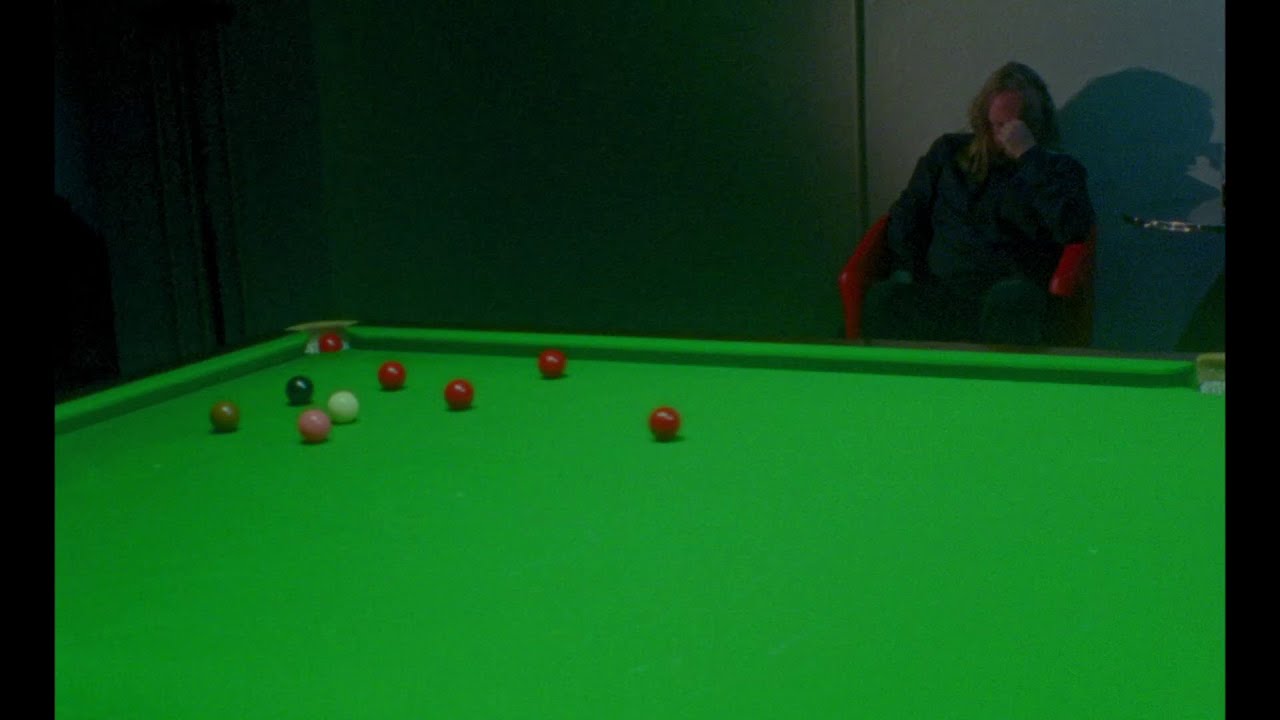I don’t know about you, but, for me, September 2021 has felt particularly extreme. On the one hand I’ve been hit by quite an intense depressive episode that’s draped everything in a thick fog of inertia and an inescapable feeling of doom; the apocalyptic queues for the petrol station that go past my house have hardly helped. On the other, there’s been moments of ecstatic beauty all around me, poking their way gently through the gloom and, occasionally, breaching it entirely.
A couple of weeks ago, for instance, I was having a particularly torrid day, but nevertheless hauled myself to see Alabaster dePlume playing at The Colour Factory in Hackney, an artist whose gorgeous 2020 instrumentals compilation To Cy And Lee has often provided comfort in a tight spot. The gig, presented as two sets and an interval with dePlume and his band playing in the middle of the room, was a force of nature. At times barmy, strange and meandering, at others a shocking bolt of pure psychedelic energy, guest vocalists, speakers and players frequently rotating, it felt totally vast in its emotional scope, irresistibly powerful despite my glumness.
A week later, I found myself at a loose end in Glasgow on a midweek evening, and so went to see Broadside Hacks, whose debut album you’ll read more about below. Again, I was alone, feeling awkward in a far smaller, more sparsely filled venue than The Colour Factory, but after watching them it felt like I’d received a double-injection of whatever vitamin I’d been missing. The band play old folk songs, those so old their authors have been lost in time, and inject in them such life, depth and emotion that it’s extremely affecting.
As I emerge from the other side of this miserable spell, as hackneyed as it might sound I feel incredibly grateful for these moments of catharsis that come with music, whether seeing it performed live or simply when the right song hits your headphones at the perfect moment. I hope that, perhaps, one of the albums or tracks below might act similarly for you.
Remember, that subscribers to tQ will receive all the below as well as an additional 5+ hours of great music wrapped up in a monthly playlist, specially commissioned albums, exclusive podcasts, essays and more. You can sign up for that here.
Patrick Clarke
ALBUMS
Broadside Hacks – Songs Without Authors (Vol. 1)
(Broadside Hacks Recordings)
Broadside Hacks is a loose collective of young indie musicians, including Katy J Pearson, Brigid Mae Power and members of bands like Girl Ray, caroline, Goat Girl and more. Brought together by Sorry’s Campbell Baum, a folk zealot, on Songs Without Authors they present new interpretations of old standards whose composers – as the title suggests – have been rendered anonymous by the sands of time. This is no mere novelty act, however, Broadside Hacks’ versions strike the ideal balance between appropriate reverence for their long list of forebears who have sung these songs for generations, and an infectious boldness of spirit. There are points, as on Thyrsis’ ‘Brigg Fair’, that the music swells with overpowering pastoral beauty, and others, like a wonky electronic re-work of ‘I Don’t Feel At Home In This World’ led by Baum’s Sorry bandmate Asha Lorenz, that are unflinchingly contemporary. Some songs are based around drones and a capella vocal pieces that border on the avant-garde, and others skip along sweetly, winsome and carefree.
Above all it’s a sense of life, more so than even than the musicians’ considerable individual abilities, that defines the record, and which saves them from the pitfalls of cheap nostalgia that often accompany modern folk revivals. Mumford And Sons’ hollow dust bowl fetishism this is not. As generations have done before them, Broadside Hacks immerse themselves deep into the worlds of these old songs, with all their dramatic joys and sorrows, and find in them an endless relevance that makes them spill over with as much life as ever, centuries on.
Patrick Clarke
Genevieve Murphy – I Don’t Want To Be An Individual All On My Own
(Unsounds)
On I Don’t Want To Be An Individual All On My Own, composer and performance artist Genevieve Murphy travels inward to tell the story of a drama-filled birthday party. The album is a one-woman show: Murphy plays every character in the story, switching from a stressed-out mother to a timid daughter to a tired grandfather to a dazed grandmother, and sprinkling pop tunes in-between theatrical spoken word tracks. In each of her monologues, she gives a glimpse into every character’s psyche. And rather than tell the story through the words each character says directly, she writes the words that run through each character’s mind, ultimately showcasing how memory is defined by how events are interpreted in the mind.
Vanessa Ague – read the full review here
Creux Lies – Goodbye Divine
(Freakwave)
and
MSYLMA & ISMAEL – مذاھب النسیان / The Tenets of Forgetting
(Éditions Appærent)
On the surface, Californian band Creux Lies’ new album, Goodbye Divine, and Egyptian singer MSYLMA’s collaborative album with countryman and producer ISMAEL have very little in common. The former is a record of pummeling gothicisms, like Tears For Fears if their big chair were built from ashtrays filled with teenage tears. The latter is classical Arabic poetry sung in MSYLMA’s gorgeous voice (that cannot even be ruined by autotune) over synths as cold as snowblindness on the escalator up to the pearly gates. As with debut MSYLMA album Dhil-un Taht Shajarat Al-Zaqum, this is a thrilling and coherent melding of the ancient with the ultra-contemporary, yet while Creux Lies are hardly reinventing the wheel, they do what they do with undeniably lustrous panache. Listening to these recent releases next to one another, suddenly they both start to make a lot of sense as cross-cultural companion pieces, revelling as they do in histrionic love, loss, yearning. Or perhaps it’s just me, and whatever culture it comes from, I just fucking love the drama.
Luke Turner
Manic Street Preachers – The Ultra Vivid Lament
(Columbia / Sony)
A better entry point for The Ultra Vivid Lament than its lead single ‘Orwellian’ is its first track, ‘Still Snowing In Sapporo’. After a few seconds of beatless electronic thrumming, James Dean Bradfield sings "I’m walking on my own, it’s 1993…," a piece of direct lyrical exactitude from Nicky Wire which recalls Richey Edwards’ "I write this alone in my bed" from 1993 itself (the opening words of Gold Against The Soul‘s lead single ‘From Despair To Where’), placing you in a precise moment and location. (The line "It feels so real, like cheap golden glitter" also refers to ‘From Despair To Where’.)
A reminiscence about a four-piece Manics’ early visit to Japan, it revisits the poignancy of 1998’s ‘The Everlasting’ ("In the beginning, when we were winning, when our smiles were genuine…"), remembering when "it was the four of us against the world." It accepts, however, that the quartet were on borrowed time: "It couldn’t last without the hurt…" From the very start, this is an album whose tendrils and roots extend to other parts of the Manics’ history. Even structurally, it echoes the band’s past: ‘Still Snowing In Sapporo’ builds into a big Manics lungbursting anthem, then retreats again, then rebuilds, then retreats. It’s the band’s own trajectory in microcosm.
Simon Price – read the full review here
Richard Youngs – CXXI
(Black Truffle)
The two long pieces that make up CXXI are a study in chance operations, but unlike a great many benchmark works in that field by John Cage and his ilk, Youngs has set up limitations that make the album pleasing to the ear, if not wholly satisfying to the pattern-craving mind. In a sense, this makes the music more transgressive: like Eno or Bryars before him, Youngs has a knack for taking challenging concepts and making them palatable to those who might not otherwise seek out being challenged by music. An invaluable skill, that, and one that’s undoubtedly pried open many a mind over these last few decades.
Dustin Krcatovich – read the full review here
Moor Mother – Black Encyclopaedia Of The Air
(Anti)
In spite of her nomadic approach to genre, Black Encyclopaedia Of The Air may well be perceived as Moor Mother swerving clear from the industrial noise of an album like 2016’s Fetish Bones. ‘Zami’ is the closest, but only just. The sound of Sun Ra’s organ in communion with a black hole, hitting out those deep bass notes like interstellar sonar. Perhaps it’ll be the first of her solo records not to be deemed ‘apocalyptic’, but has Moor Mother ever dealt in the apocalypse? No. Pessimists don’t keep this busy. You don’t build a body of work, a network of collaborators, if you harbour a secret doomsday hunger now do you?
Eden Tizard – read the full review here
Low – HEY WHAT
(Sub Pop)
Low’s thirteenth full-length album finds the group focusing on imaginative new ways to express the joy and dissonance of being alive. It can be argued that anxiety is our natural state; to be completely calm in a world that is beyond our comprehension seems ludicrous. That being said, anyone familiar with the processes of cognitive behavioural therapy knows that we must learn to tolerate the anxiety, and in turn tolerate uncertainty. Where previous album Double Negative allowed us to hear what was wrong, HEY WHAT is the sound of transcending pain while being comfortable with its presence.
Hayley Scott – read the full review here
Shackleton – Departing Like Rivers
(Woe To The Septic Heart)
There are elements of the many avenues that Shackleton has explored over the years on the seven pieces that make up Departing Like Rivers, his first solo album since 2012’s Music For The Quiet Hour. Within the first four minutes of 13-minute opening track ‘Something Tells Me / Pour Out Like Water’ alone, you’ll hear the thunderous bass pressure of those early Skull Disco releases on which the artist first built his name, rubbing up next to the live instrumentation and almost shamanic percussion and vocal play that has characterised much of his collaborative work in more recent years.
Across a series of extended cuts, and a couple more quickfire ones too, Shackleton draws on that deeply psychedelic quality that has always tied together his work, as he’s veered down ever-experimental paths and invited various collaborators into his sound world. Vocal samples pulled from old British folk records are stretched and masterfully manipulated in all kinds of ways, each new contortion pushing you deeper still into the trippy wormhole that he conjures up. I’ve admittedly found it somewhat difficult at times to fully get into some of Shackleton’s collaborative projects of recent years. With Departing Like Rivers though, particularly as the dubby, Coil-like sounds of stunning closing cut ‘Transformed Into Love’ unfurl across 14 minutes, it feels like he’s found a breathtaking sweet spot between the last decade’s output and all of those groundbreaking early productions that made me fall in love with his work in the first place.
Christian Eede
Simo Cell – YES.DJ
(TEMƎT Music)
Simo Cell’s debut mini album, which comes with a rather artsy fanzine that includes his photos of drink tokens from clubs around the world, is a rude bass affair that excellently reflects the Frenchman’s eclectic and flexible approach to DJing. We could compare it to his recent stunning set recording from this year’s Dekmantel Selectors, which offers a simultaneously gradual and intense progression from 90 to 160 BPM. Even though his productions are characteristically sophisticated, interwoven with ASMR-esque details and spectral voices, the emphasis is always on the body-shattering low-end soundwaves that make you rip off your shirt on a dancefloor, especially in the case of ‘Cegetel’ and ‘Whispers’. Covering a wide range of club references, from mutant dancehall emulations, horror trap and Memphis hip hop to futuristic takes on juke, Jersey club and shiver-inducing dub, YES.DJ is not particularly special in terms of novelty, since we have already experienced most of his tricks elsewhere. It is outstanding because it captures the essence of Simo Cell as a one-of-a-kind DJ/producer, caught in a cross-pollinating feedback loop between listener and creator.
Jaša Bužinel – read the full review <a href="https://thequietus.com/articles/30551-hyperspecific-september-dance-music-rdl-shellah-air-max-97-simo-cell-review" target=“out">here
TRACKS
Parris with Eden Samara – ‘Skater’s World’
On the lead track from his debut album, Parris swaps the low-end bass minimalism of past releases for labels such as The Trilogy Tapes and Hemlock for a more outright colourful sound that blends UK funky and alt-pop. It’s all tied together dazzlingly by Eden Samara’s carefree vocal.
Christian Eede
Remi Wolf – ‘Guerrilla’
There is an idea in some quarters that cheerful, upbeat music must necessarily be frivolous and disposable, but this freakish concoction – equal parts Dee-Lite and Edwin Birdsong, and the work of a former American Idol contestant, no less – is a thousand times more uncanny and psychedelic than the music of a thousand grey men with guitars and vintage drum machines.
Robert Barry
Divide And Dissolve – ‘Mental Gymnastics (Moor Mother Remix)’
Moor Mother is as magnetic a vocalist as Divide And Dissolve are instrumental musicians; both of them have established themselves among the most intense and vital artists of the current left-field. Their combination here, Moor Mother’s transfixing vocals simmering over the duo’s churning and uneasy instrumental, is even greater than the considerable sum of its parts.
Patrick Clarke
Tirzah (ft. Coby Sey) – ‘Hive Mind’
Released as the final preview to Tirzah’s new album, Colourgrade, ‘Hive Mind’ is a masterful exercise in restraint and minimalism, a quality which runs through much of the record, as she and frequent collaborator Coby Sey exchange silky smooth vocals over an unfussy drum machine loop.
Christian Eede
Little Simz – ‘I See You’
The tenderness in one of the more stripped-back tracks on Little Simz’s transcendent fourth LP, Sometimes I Might Be Introvert, is soothing and simple, yet so wise in its vulnerability and certainty about long-lasting romance. ‘Still be my biggest fan if I cancelled all my dates?’ Simz tentatively asks, bottling her unshakeable assurance while also putting herself – an indomitable performer but an introvert just looking to be loved – bravely on the line.
Ella Kemp
Sola – ‘Feels Like A War’
I loved Sola’s ‘Oh My Love’ last year. This is a little smoother. Less dream pop, more sophisti-pop, perhaps. But with its vaporous vocals and stuttering samples, it’s still totally dreamy.
Robert Barry
Martha Skye Murphy – ‘Stuck’
The second part of a planned triptych from the absurdly talented young London musician, actor and performer, is the perfect demonstration of her deft command of intensity and emotion. A rich and textured track, lavish in instrumentation, it is nevertheless subtle in its affectivness.
Patrick Clarke
Grouper – ‘Ode To The Blue’
Centred around a simple three-chord acoustic guitar line, the tape hiss that runs through much of Liz Harris’ recorded output, and her characteristically tender vocal, ‘Ode To The Blue’ offers an entrancing, sparse preview to forthcoming album Shade, which I can already sense is going to become a regular soundtrack to various journeys as the winter months draw in.
Christian Eede
Springtime – ‘Will To Power’
Springtime is a new trio consisting of Gareth Liddiard (Tropical Fuck Storm, The Drones) Jim White (Dirty Three, Xylouris White) and Chris Abrahams (The Necks), whose debut single ‘Will To Power’ is every ounce as brilliant as any of their other projects, Liddiard’s hectic, frazzled vocals the perfect match for a gloomy and dramatic backing.
Patrick Clarke
Overmono – ‘Bby’
Now three releases deep in 2021, those Overmono guys certainly know how to get the most out of the breakbeat, screwface bassline and tearjerking breakdown combo, and when the results are as killer as this, they can keep them coming.
Christian Eede
GNOD – ‘Pink Champagne Blues’
One of the most vital left-field bands in Britain, GNOD have reeled in their recent tendency for long-form wig-outs in favour of a tight, dense head-mangler of a new single.
Patrick Clarke
Air Max ’97 – ‘Eat The Rich’
The intricate introductory snare rolls of ‘Eat The Rich’ could draw comparisons to the work of UK producers like Ploy, but they’re also pure Air Max ’97 extravagance, zigzagging between clanky kuduro percussion, thundering sub frequencies and menacing grime rudeness.
Jaša Bužinel
Richard Dawson & Circle – ‘Lily’
Richard Dawson and Circle are both artists of considerable strangeness, and the subtly twisted first taste of their new collaborative LP brings out plenty of it, particularly when Dawson’s vocal hits a glorious falsetto as Circle’s chugging groove suddenly takes off on the chorus.
Patrick Clarke
Ross From Friends – ‘Love Divide’
One of the most mercurial, dextrous producers in the UK, Ross From Friends never disappoints at a live show, but there’s something about the chugging beat and skittering melodies of his new one which prove he’s taking this to an all-new level. It might be the starvation the pandemic left us with, or he might just be working on a higher plane now. Either way it’s pretty spellbinding.
Ella Kemp

